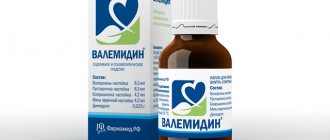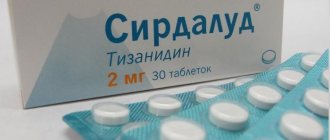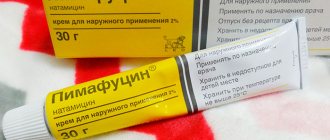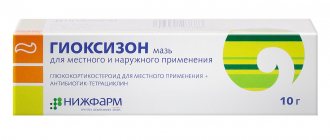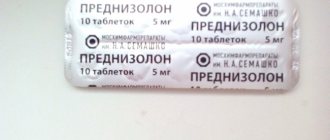Man is an omnivorous creature. Our digestive system copes with both plant and animal foods. For this, through long evolution, digestive glands and their various juices were formed. So, bile helps dissolve (emulsify) fats, and pancreatic lipase digests them.
Gastric juice is a highly aggressive acidic environment that can dissolve many organic compounds, and the enzyme pepsin contained in gastric juice begins digestion. (Strictly speaking, digestion begins in the oral cavity - the amylase enzyme contained in saliva begins the breakdown of starch and carbohydrates).
The pancreas plays a vital role in digestion. It produces enzymes that can break down proteins, fats and carbohydrates. These are amylase, lipase and peptidase. These highly aggressive molecules "pounce" on any substances that appear in front of them. Therefore, inside the gland they are stored in an inactivated form and are activated in the duodenum.
But sometimes there is a glitch. In acute pancreatitis, this caustic juice ends up inside the gland itself and begins to digest it. The autolysis stage occurs, during which very severe pain occurs. After acute pancreatitis, the gland often loses its ability to produce “high-quality” enzymes and does not work effectively enough. The result is enzymatic insufficiency of the pancreas.
Pharmacological properties of the drug Creon
Creon contains pancreatin of porcine origin in the form of enteric-coated (stable in acidic environment) minimicrospheres in gelatin capsules. The capsules dissolve quickly in the stomach, releasing hundreds of mini-microspheres in a multi-dose manner, which ensures good mixing with the stomach contents, transport from the stomach along with its contents and, after release, good distribution of enzymes within the intestinal contents. When the minimicrospheres enter the small intestine, the shell quickly dissolves (at pH 5.5), releasing enzymes with lipolytic, amylolytic and proteolytic activity, which ensures the breakdown of fats, carbohydrates and proteins. The products of pancreatic digestion are then absorbed either immediately or after further hydrolysis by intestinal enzymes. In animal studies, there was no evidence of enzyme absorption in unchanged form, and therefore classical pharmacokinetic studies were not performed. Pancreatic enzyme supplements do not require absorption to be effective. On the contrary, their full therapeutic effect is manifested in the lumen of the gastrointestinal tract. Moreover, as substances of protein origin, they undergo proteolytic cleavage while passing through the gastrointestinal tract before being absorbed in the form of peptides and amino acids. Data from preclinical studies do not indicate acute, subchronic or chronic toxicity.
How does pancreatic insufficiency manifest?
Creon 10000 photos
People with pancreatic enzyme deficiency develop digestive insufficiency. They cannot fully digest proteins, fats and carbohydrates. As a result, for example, the phenomenon of creatorrhoea and steatorrhea occurs. In the first case, undigested muscle fibers can be found in the feces after eating meat, and in the second - neutral, undigested fat, due to a lack of pancreatic lipase.
As a result, complaints arise about instability of digestion, bloating, intolerance to certain types of food, alternating constipation and diarrhea. This leads to chronic damage to the intestines - secondary dysbiosis and vitamin deficiency develop (after all, many vitamins are produced by microbes living inside us), and immunity decreases.
It is for the correction of these disorders that enzymatic preparations are intended, to which Creon belongs.
Indications for use of the drug Creon
Insufficiency of exocrine pancreatic function in adults and children caused by the following conditions:
- cystic fibrosis,
- chronic pancreatitis,
- pancreatectomy,
- gastrectomy,
- pancreas cancer,
- operations involving gastrointestinal anastomosis (for example gastric resection according to Billroth II),
- obstruction of the pancreatic or common bile duct (for example by a tumor),
- Shwachman-Diamond syndrome and other diseases accompanied by exocrine pancreatic insufficiency.
Side effects
The most frequently identified side effects of using Creon are expressed in changes in the functioning of the gastrointestinal tract:
- nausea reflexes;
- bloating;
- pain in the abdominal area;
- constipation;
- vomit;
- diarrhea;
- formation of strictures in the area of the ileocecal region (with long-term use in large doses).
In addition, the following reactions may occur:
- from the skin reaction (more often in children): allergic rashes, urticaria, atopic dermatitis, itching;
- from the immune system: sensitivity to the components of the drug, anaphylactic reaction;
- from the genitourinary system: with long-term use in large doses - hyperuricosuria.
Important! If side effects occur as a result of taking the drug, you should immediately stop therapy and consult a doctor for advice.
A qualified specialist will be able to change the dosage or prescribe another drug to continue treatment.
Overdose
Significantly exceeding the prescribed dosage can provoke pronounced side effects. To eliminate the negative reaction of the body, symptomatic treatment is used. Regular overdoses can change the composition of the blood and cause the development of hyperuricemia and hyperuricosuria.
If you suspect negative consequences of exceeding dosages, it is necessary to carry out laboratory testing of biological material.
Possible consequences of overdose:
- attacks of uncontrollable vomiting and nausea;
- excessive drooling;
- constipation and signs of bloating;
- discomfort in the gastrointestinal tract of varying degrees of intensity;
- allergic reactions (only with hypersensitivity to the drug);
- sharp pain attacks localized in the abdominal area.
Contraindications
The drug Creon is not recommended to be taken in the following cases:
- acute inflammation of the pancreas at the initial stage of the disease;
- intolerance to the components of the drug;
- pancreatitis in chronic form.
Pregnancy
Caution during pregnancy is due to the fact that clinical trials on the effects of the drug on pregnant women have not been carried out.
In this regard, it is recommended to take Creon during pregnancy strictly under the supervision of a doctor and in small doses.
- If you have any symptoms of the disease, you should immediately consult a doctor. You can view a list of gastroenterology clinics on our website
- You will be interested! The article describes symptoms that make it possible to suspect the presence of liver disease in the early stages
- You will also be interested in learning more about the treatment of various diseases of the gastrointestinal tract
Use of the drug Creon
The dosage of the drug Creon is based on the individual needs of the patient and depends on the degree of indigestion and the composition of the food. To determine an adequate individual dose, there are three doses of the drug - Creon 10000, Creon 25000, Creon 40000. It is recommended to take the drug with meals. Capsules and minimicrosphere granules should be swallowed whole, without chewing, and washed down with a sufficient amount of liquid. If the capsule cannot be swallowed whole (children and the elderly), it can be opened and mini-microsphere granules can be added to liquid food that does not require chewing, or to a liquid with a neutral or slightly acidic environment (yogurt, grated apple, etc.). This mixture should be taken immediately and not stored. During treatment with Creon 10000, Creon 25000, Creon 40000, it is very important to drink enough fluid, especially during periods of increased fluid loss. A lack of fluid can cause constipation. Dosing for cystic fibrosis : - the initial dose for children under 4 years of age is 1000 IU lipase / kg body weight during each meal and for children over 4 years of age - 500 IU lipase / kg body weight during each eating. The dose should be individualized based on disease severity, control of steatorrhea, and maintenance of adequate nutritional status. The maintenance dose for most patients should not exceed 10,000 IU lipase/kg body weight per day. Dosing for other types of exocrine pancreatic insufficiency : - the dose must be selected individually, depending on the degree of digestive disturbance and the fat composition of food. The usual starting dose is 10,000 to 25,000 units of lipase with each main meal. However, it is possible that some patients require higher doses to eliminate steatorrhea and maintain adequate nutritional status. General clinical practice suggests that at least 20,000–50,000 units of lipase should be consumed in the diet. The dose during main meals (breakfast, lunch or dinner) can range from 20,000 to 75,000 IU of lipase, and with additional light meals between main meals - from 5,000 to 25,000 IU of lipase.
Release form and composition
The medication is produced in the form of enteric hard capsules containing light brown mini-microspheres - pancreatin (active component):
- Creon 10000 – containing 150 mg of pancreatin (which corresponds to 10,000 units of Ph.Eur. lipase);
- Creon 25000 – containing 300 mg of pancreatin (which corresponds to 25,000 units of Ph.Eur. lipase);
- Creon 40000 – containing 400 mg of pancreatin (which corresponds to 40,000 units of Ph.Eur. lipase).
When using the medication for children, it should be taken into account that Creon 1000 is not produced, and in pediatrics they use Creon 10000, the dose of which is calculated by the doctor based on the age and body weight of the child.
The medicine is produced in bottles of 20, 50 and 100 pieces.
Special instructions for the use of the drug Creon
In patients with cystic fibrosis who took high doses of other pancreatin preparations, narrowing of the ileocecal intestine and colon (fibrosing colonopathy), as well as colitis, was noted, but controlled studies failed to provide evidence of an association between taking Creon and the occurrence of fibrosing colonopathy. However, as a precautionary measure, it is necessary to exclude the possibility of damage to the colon in the event of unusual abdominal symptoms or a change in the nature of the symptoms of the underlying disease, especially if the patient is taking more than 10,000 IU lipase/kg/day. Use during pregnancy and lactation. Due to the fact that there is no clinical trial data on the effect of pancreatic enzymes on the course of pregnancy, the drug should be prescribed with caution during pregnancy. Animal studies have shown no evidence of absorption of pancreatic enzymes. Thus, the possibility of toxic effects on reproductive function and fetal development is excluded. Since animal studies indicate that there is no systemic exposure to pancreatic enzymes in women during breastfeeding, no effect on the breastfed infant has been identified. Children. Creon can be used for children. The ability to influence the reaction rate when driving a vehicle or while working with other mechanisms. There is no data on the negative effect of the drug Creon on the ability to drive vehicles or operate other mechanisms.
Contraindications
According to the instructions, Creon is contraindicated in case of aggravated or acute pancreatitis, as well as in case of individual intolerance to porcine pancreatin or other components of the drug.
Also, Creon should not be used in the early stages of pancreatitis.
When using Creon by children for a long time, it is necessary to undergo regular monitoring by a specialist.
To exclude possible damage to the colon when using Creon, especially in large doses, you should monitor the appearance of unusual symptoms in the abdominal cavity.
Notes
- Pancreatin: instructions, application and formula. (unspecified)
(inaccessible link). rlsnet.ru. Access date: March 19, 2012. Archived February 12, 2009. - ↑ 123
Sablin O. A., Butenko E. V. Enzyme preparations in gastroenterology // Consilium-Medicum. - 2004. - Volume 6. - No. 1. Gastroenterology. - ↑ 1 2 3 4
Mezim.
Description of the drug. (undefined)
. webapteka.ru. Access date: August 7, 2011. - Moral problems of pancreatology in the CIS countries Archived copy dated December 8, 2011 on the Wayback Machine (text copy Archived copy dated December 4, 2014 on the Wayback Machine
- Pancreatin (Pancreatinum) - description of the substance, instructions, use, contraindications and formula
- Pancreatin - instructions for use, composition, drug analogues, dosages, side effects
Price
The average cost of a drug is the sum of the average price of the drug in the regions of the country.
Average price for the drug in Russia
- Creon 10000 - 290 rubles per bottle of 20 capsules of the drug;
- Creon 25,000 - 560 rubles per bottle of 20 capsules of the drug;
- Creon 40,000 - 1,370 rubles per bottle of 50 capsules of the drug.
Average price for the drug in Ukraine
- Creon 10,000 - 96 hryvnia per bottle of 20 capsules of the drug;
- Creon 25,000 - 226 hryvnia per bottle of 20 capsules of the drug;
- Creon 40,000 - 1,220 hryvnia per bottle of 50 capsules of the drug.
Reviews
Reviews about the drug Creon are mostly positive. More detailed patient impressions of the drug can be found at the end of the article. Some patients who take Creon regularly after gastric surgery note the drug’s ability to enhance digestion.
There are reviews that describe positive effects during pregnancy. Side effects (constipation, diarrhea) occur more often in children.
All gastroenterology clinics and medical centers in your city. Tests and ultrasound. Consultation with a gastroenterologist. Diseases of the digestive system. Find out more: - In Kiev (Hertz, Ilaya, Euromed) - In St. Petersburg (SM-Clinic, Longevity, Allergomed, Doctor +, BaltZdrav, Professor) - In Moscow (SM-Clinic, Medlux, Onmed) - In Kharkov ( TsMEI, Olympic, Victoria, Fortis, Ecomed) - In Minsk (Belgirudo, Art-Med-Company, Sinlab, Mikosha, GrandMedica, MedClinic) - in Odessa (Medea, On Clinic, Into Sano, Venus) - In Razyan (Trust + , Polyclinic-Pesochnya, Evrikas +) - in Nizhny Novgorod (Only Clinic, Alpha Center, EuroClinic, SOLO, Altea) - gastroenterological clinics of Tyumen (Doctor A+, Clinic "Vera", Avicenna, Medis, Sibirina, Your Doctor)




